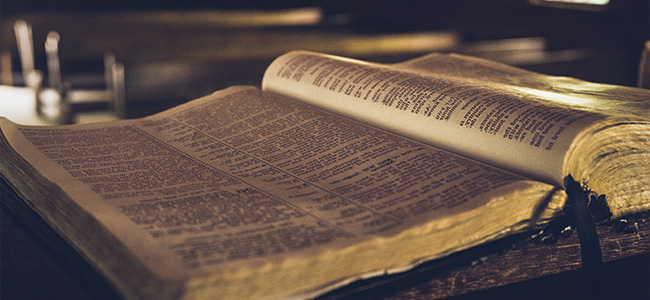No Ordinary Man

As we are preparing for eternity we are to hold the name of our God in supreme reverence both by our character and how we approach Him. Does that include places of worship? What did Jacob do when he realized that the presence of God was in a place after he saw the vision of the angels? “And Jacob awaked out of his sleep, and he said, Surely the LORD is in this place; and I knew it not. And he was afraid, and said, How dreadful is this place! this is none other but the house of God, and this is the gate of heaven. And Jacob rose up early in the morning, and took the stone that he had put for his pillows, and set it up for a pillar, and poured oil upon the top of it” (Genesis 28:16–18).
“[A] precious grace that should be carefully cherished is reverence. True reverence for God is inspired by a sense of His infinite greatness and a realization of His presence. With this sense of the Unseen the heart of every child should be deeply impressed. The hour and place of prayer and the services of public worship the child should be taught to regard as sacred because God is there. And as reverence is manifested in attitude and demeanor, the feeling that inspires it will be deepened.” 1
Why such reference for His name as well as for places of worship and other sacred services? “He sent redemption unto his people: he hath commanded his covenant for ever: holy and reverend is his name” (Psalm 111:9). The commandment teaches us to respect Him whenever we reference the name of our Creator. “God is greatly to be feared in the assembly of the saints, and to be had in reverence of all them that are about him” (Psalm 89:7). “Those who are brought into covenant relation with God are pledged to speak of Him in the most respectful, reverential manner. Many refer to God and mention His name in their religious conversation much as they would mention a horse or any other common creature. This dishonors God. By precept and example parents should educate their children on this point, lest by irreverence they grieve away God's Spirit from their hearts and the hearts of their children.” 2
What warning did God give Moses as he approached the presence of the Divine One? “Draw not nigh hither: put off thy shoes from off thy feet, for the place whereon thou standest is holy ground” (Exodus 3:5). “Well would it be for young and old to study and ponder and often repeat those words of Holy Writ that show how the place marked by God's special presence should be regarded.” 3
What about God's word?
The Bible has been given us as a power to change lives. “All scripture is given by inspiration of God, and is profitable for doctrine, for reproof, for correction, for instruction in righteousness. That the man of God may be perfect, throughly furnished unto all good works” (2 Timothy 3:16, 17). By teaching us the truth (doctrine) it shows us where we are wrong (reproof). Not only does it show us our wrongs, but because the Word is Jesus, it has the power to change us (correction) and continue this process until perfection.
Because the Bible can do all that, how should we treat it? “The Bible is God's voice speaking to us, just as surely as if we could hear it with our ears. If we realized this, with what awe we would open God's Word and with what earnestness we would search its precepts. The reading and contemplation of the Scriptures would be regarded as an audience with the Infinite One.” 4
What about the printed book itself? “We should reverence God's word. For the printed volume we should show respect, never putting it to common uses, or handling it carelessly. And never should Scripture be quoted in a jest, or paraphrased to point a witty saying. Every word of God is pure;' as silver tried in a furnace of earth, purified seven times.' Proverbs 30:5; Psalm 12:6.” 5